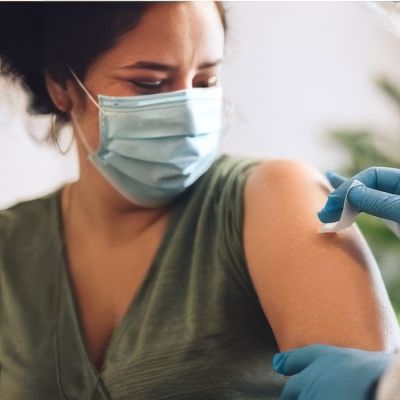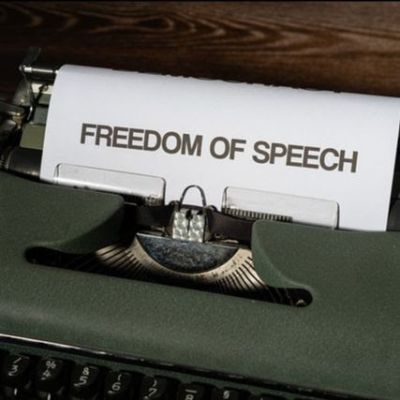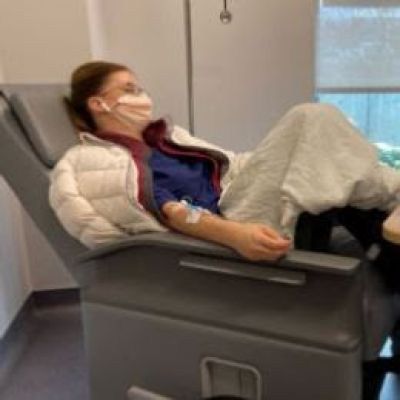Legal Updates
As a science-based nonprofit, React19 would like nothing more than to devote 100% of its energy to a singular purpose – finding a cure for the COVID vaccine-injured. Unfortunately, because of the Federal government’s abysmal treatment of our community, we have been forced out of the lab and into the courtroom. React19, and select individual plaintiffs, are currently engaged in critical litigation on behalf of the entire COVID vaccine-injured community. Below is a summary of these cases with links to additional information on each case. The rulings in these cases may have a direct impact on the rights of all COVID vaccine-injured Americans.

Smith v. HRSA
Explore the case of Smith v. HRSA and its potential implications on the inclusion of COVID-19 vaccines in the VICP.
A personal injury lawsuit is a legal case filed by an individual who claims to have suffered physical, emotional, or psychological harm due to the negligence or intentional actions of another party. These lawsuits typically seek compensation for damages such as medical expenses, lost wages, pain and suffering, and other losses incurred as a result of the injury. Personal injury cases can arise from various situations, including car accidents, slip and fall accidents, medical malpractice, defective products, and workplace accidents, among others.
Unfortunately for the COVID vaccine-injured, the Public Readiness and Emergency Preparedness (PREP) Act provides near bulletproof immunity for the vaccine manufactures (and the distributors and administrators, amongst others) – gutting our members’ ability to bring a successful personal injury action against them. Instead of being able to seek redress from the corporations that made billions from the COVID vaccines, the injured are forced to lodge claims with an underfunded, understaffed, and highly inadequate program known as the Countermeasures Injury Compensation Program (CICP). [Other vaccine injury claims from vaccines that are routinely recommended for children or pregnant women are filed in a separate, and also inadequate program, known as the Vaccine Injury Compensation Program (VICP). Manufacturers are also immune from those claims, which are brought against the U.S. government.]
Due to its unrealistic filing deadline, impossible standard of proof, paltry benefits, conflicting interests, and lack of judicial review, the CICP has currently rejected 98% of claims – compensating just twelve individuals nationwide with a combined total payout of $44,000. In contrast, the React19 CAREFUND has contributed over $800,000 directly to the injured.
In response, React19 joined other key plaintiffs in Smith v. HRSA seeking to strike down the PREP Act’s egregious CICP immunity provisions. For legal reasons, React19 was dropped as a plaintiff but the others remained. And soon after in Smith v. USA was filed, React19 co-chair Dr. Joel Wallskog joined three fellow plaintiffs in another challenge to CICP, including a young boy diagnosed with immune thrombocytopenia purpura; a mother who developed vaccine-induced dysautonomia; and a respected pediatric neurologist from Harvard Medical School. The second CICP case brings the same and additional claims as those raised in the preceding Smith case.
Both Smith v. HRSA and Smith v. USA specifically allege that the PREP Act violates the COVID vaccine-injured’s due process rights under the Fifth Amendment. The second case also alleges a violation of the right to a jury trial under the Seventh Amendment a violation of the Takings Clause under the Fifth Amendment. The plaintiffs in these cases are not the only people these rulings will impact. They are what is called “facial” challenges and, if successful, will impact thousands of Americans injured by the COVID vaccines, and by extension the plaintiffs hold the important responsibility of representing our entire community. Should the cases succeed, they would establish precedent for all members of the COVID vaccine-injury community. Our members might then be eligible to either directly sue the pharmaceutical companies, or the government would be forced to provide a “reasonable alternative remedy” through comprehensive vaccine injury compensation programs.
The cases are currently pending in the United States District Courts of the Western District of Louisiana and the Northern District of Texas, respectively. In both, the injured are fortunate to be represented by Siri & Glimstad LLP, with the support of Informed Consent Action Network (ICAN). Without this esteemed legal counsel, these unprecedented cases would not be moving forward.

Dressen v. Flaherty
This case challenges the government’s mass-censorship program in ensuring that disfavored viewpoints deemed a threat to its agenda are suppressed.
The First Amendment to the United States Constitution is one of the most fundamental components of American law. The First Amendment protects several basic liberties, including freedom of religion, freedom of speech, freedom of the press, the right to assemble peacefully, and the right to petition the government for redress of grievances.
However, because the COVID vaccine-injured constitute an inconvenient truth contradicting the government’s “safe and effective” narrative, numerous federal agencies and government actors—including within the White House—coerced and induced social media platforms to censor, suppress, and label as “misinformation” speech expressed by those of us who have suffered vaccine-related injuries. This state action is unlawful, and the government must not be allowed to censor such free speech and free association.
For that reason, React19 Co-Chair Brianne Dressen and five other React19 members brought suit seeking to enjoin this deplorable government conduct. The case, Dressen v. Flaherty, is currently pending in the United States District Court for the Southern District of Texas. This case is represented by the New Civil Liberties Alliance – one of the country’s premiere nonpartisan legal organizations focused on protecting individual rights and challenging administrative overreach. We are grateful for its support.
Since filing, the Supreme Court heard oral argument in Murthy v. Missouri - surely one of the most pivotal First Amendment cases in U.S. history. Significantly, because Dressen and Murthy raise the same constitutional questions regarding the government’s censorious coercion of social media companies, this case is essentially on hold until the Court rules in Murthy. For that reason, React19, in partnership with the Manhattan Institute, and with assistance from Siri & Glimstad LLP, submitted an Amicus Brief for the Court’s consideration in Murthy. We remain hopeful the Court will consider the egregious censorship of the COVID vaccine-injured before issuing its critical ruling in Murthy.
Much like the other cases mentioned above, the precedent-setting outcome of Dressen v. Flaherty will likely affect every single member of our community, appropriately so in light of the fact that we have all been victimized by the government’s censorious conduct.

Dressen v. AstraZeneca
Case over breach of contract in COVID-19 vaccine clinical trial injury.
A breach of contract case occurs when one party to a contract fails to fulfill their obligations as outlined in the agreement without a legal justification. In simpler terms, it’s when someone doesn’t do what they promised to do in a contract.
Unfortunately, due to the unique nature of the COVID vaccine rollout, a contractual agreement never existed between the pharmaceutical companies and any member of our vaccine-injured community.
However, React19 Co-Chair Brianne Dressen is the rare exception as she entered into a contractual relationship with AstraZeneca prior to participating in its clinical trial. Specifically, the clinic trial consent form promised that AstraZeneca would “cover the costs” if a participant suffered a “research injury,” including but not limited to medical bills. Further, the contract provided that the drug company would provide medical treatment or refer a participant to treatment in the event they suffered a serious adverse reaction like Bri’s. AstraZeneca honored none of its promises and, instead offered Bri an insulting $1,243.30 in exchange for her promise to release all claims against it, and thus, it breached its contractual obligations to Bri. Bri appropriately filed suit against the company for this unconscionable breach of its contractual obligations. The case, Dressen v. AstraZeneca, is currently pending in the United States District Court District of Utah. Again, Siri & Glimstad LLP has stepped up for the injured by representing Bri.
While Bri is the only plaintiff in this lawsuit, it is intended to benefit all of the COVID vaccine-injured. Not only is the case raising awareness of COVID vaccine injury on a global scale, its discovery process is likely to uncover evidence that COVID vaccine clinical trials never adequately supported the “safe and effective” narrative trusted by so many. By debunking the government narrative, the case has the potential to increase the credibility of all those who have asserted vaccine injury claims and to hopefully deter bad behavior on the part of clinical trial sponsors in future trials.
Other Avenues for Litigation
Social Security Disability Insurance (SSDI) Claims: Individuals who suffer severe injuries or disabilities as a result of COVID-19 vaccines may be eligible to file for Social Security Disability Insurance benefits. SSDI provides financial assistance to individuals who are unable to work due to a disability that is expected to last for at least one year or result in death. Claimants must meet specific eligibility criteria and provide medical evidence of their disability to qualify for benefits.
Workers' Compensation Claims: Employees who experience adverse reactions or injuries related to COVID-19 vaccines may be entitled to workers' compensation benefits. Workers' compensation provides coverage for medical expenses and lost wages for employees who are injured or become ill in the course of their employment. To qualify for benefits, individuals must demonstrate that their injury or illness occurred while performing work-related duties or as a result of their employment.
Disability Insurance Policy Violations: Individuals who hold disability insurance policies may pursue legal action if their insurer wrongfully denies or terminates their benefits following injuries or disabilities caused by COVID-19 vaccines. Disability insurance policies typically provide coverage for individuals who are unable to work due to a disabling injury or illness, including those resulting from vaccination. Insurers are required to evaluate claims in good faith and provide benefits to policyholders who meet the terms of their policy. Claimants may pursue litigation if their insurer violates their policy terms or acts in bad faith by unreasonably denying or delaying benefit payments.
These are just a few examples of potential litigation claims for individuals injured by COVID-19 vaccines. We bring these avenues to your attention as each of these possibilities do have a statute of limitations specific for each state, many of which may have expired or could be expiring soon.
Each case is unique, and individuals should consult with credible legal professionals specializing in vaccine injury and disability law to explore their options and determine the best course of action.
Were you fired employer for not taking the COVID vaccine? Contact Siri & Glimstad to see if you may be eligible for SUBSTANTIAL COMPENSATION!
If you are injured and are seeking to connect with an attorney, visit the Freedom Counsel webpage and and fill out the INJURED PARTIES form to submit your information.
